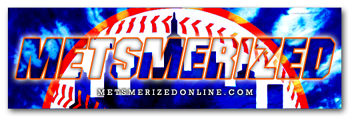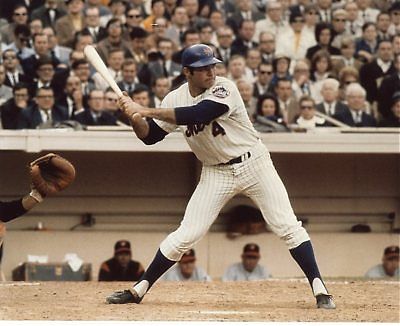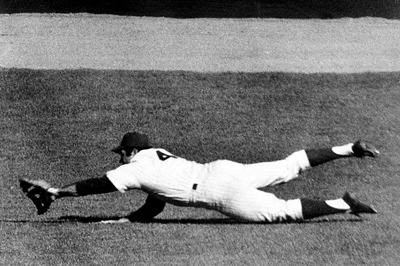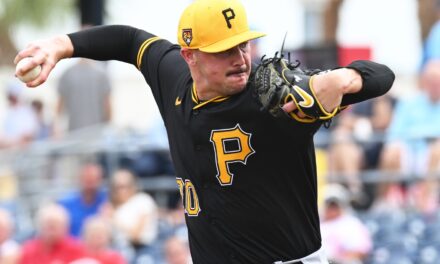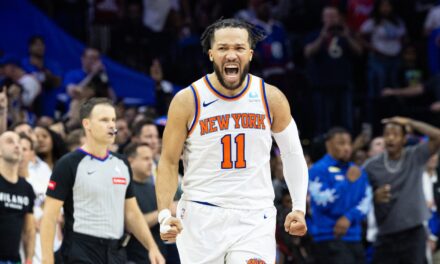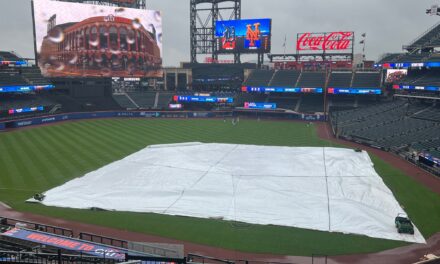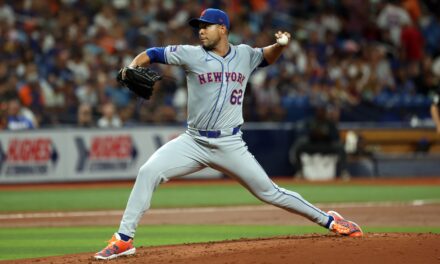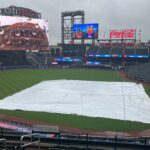Baseball players tend to disappear after retirement. Without the spotlight of national media, or admiration of thousands of fans, they fade back into mainstream society. They leave only memories, and their absence from the game makes it easy to forget that these guys we watched on TV are still real people. My mission is to allow fans to remember these forgotten players by seeking them out and talking to them in our quest to answer our burning question, “Where are they now?”
Today I chatted with former Mets outfielder Ron Swoboda about his playing days, The Catch, what he’s doing now, and his take on the Mets today.
Noah: What was your favorite memory from your time with the Mets?
Ron: I played in one World Series, and that was 1969. I’m in the midst of writing my memoir right now and I’m currently plowing through the segment of the 1969 World Series and weaving through all the amazing things that happened to us as a baseball team along with the incredible cultural things that were happening back then. It was an amazing time.
Noah: So you played on the Mets throughout the ups and downs of the 1960’s and the early 1970’s. How did the atmosphere around the team change before or during that 1969 season?
Ron: Well when you see your pitching developing like Tom Seaver, Jerry Koosman, Nolan Ryan, Gary Gentry, and Tug McGraw -you know, good young arms- that look like people that can go out there and compete, you start feeling like the team is moving in the right direction. These things don’t happen overnight, and when you’re playing 162 games in a season, there’s such an incredible ebb and flow from week to week. we had never won anything, and then all of the sudden 1969 starts happening. We were still working out who we were as a baseball team, and that happened gradually. Then all of the sudden it came (together) in a big run during the last month of the season.
Noah: During your time with the Mets, you played alongside some legendary players and played under some legendary coaches. Can you pinpoint any one of them that shaped you as a player or as an individual?
Ron: I’m probably the wrong guy to be asking about who’s shaping you, I struggled a little with authority. (laughs) But when you play around people who knew how to conduct themselves, Guys like Gil Hodges, obviously. When you saw how he handled the ballgame as a manager, and you realized that you may disagree with what he’s doing, you might want to be out there playing and he’s got you on the bench but he had a pretty good idea of what he was doing. It doesn’t make it any easier to sit on the bench -which I did- but you knew that the pieces were in place (to win) and Gil knew that he had some buttons to push. I don’t know if a manager can make you something that you’re not, but when you play at the big league level, some coaches understand the game better than you do, and they’ll suggest some things along the way to make you a better player.
Noah: Near the end of the 1969 season, you played against Steve Carlton and the Cardinals. Carlton struck out 19 Mets but you hit two home runs to give the Mets the win. With the rest of the team struggling, how did you approach those at bats.
Ron: Well I was struggling too (laughs). Carlton had amazing stuff, and I never hit him very well in my career. I can’t explain how it happened except that it was one of those days where I actually wasn’t feeling very comfortable at the plate. St Louis was one of the few stadiums that had a batting cage behind the left field wall and I went out there and asked Ralph Kiner -who was one of the broadcasters for the Mets- if he could feed me some balls and look at me. “See if you can see anything (wrong), I’m lost.” So he fed me some balls and watched me swing, suggested a couple of things and before long, he said, “Boom! That looks pretty good!” He worked with me and somehow I got in a good frame of mind and faced Carlton that night. He was on his way to striking out 19 batters and I hit these two bombs off of him. (Laughs) I have to mention that he also struck me out twice and had two strikes on me each time I hit a home run.
Noah: During your time with the Mets, you weren’t really known for your fielding ability, even earning the nickname Rocky from New York media. However, you then made arguably the greatest catch in Mets postseason history in 1969. How did you work to become a better outfielder, despite being doubted by so many people?
Ron: Well I worked with Eddie Yost (the third base coach) and he hit me thousands of fungoes. Yeah I still made mistakes in the outfield because in the big leagues you play in these big tall stadiums where it’s hard to pick up the ball. I struggled with that in the minors, I was unsure of myself, nd the big leagues are the wrong place for self doubt. Still, I worked at it, and ultimately I got better. Was I as good as the catch I made in game four of the 1969 World series? Probably not. But I definitely was a better outfielder than a lot of people thought.
Noah: Speaking of that catch, take me through that play, what exactly was going through your mind when Brooks Robinson hit that ball?
Ron: I had worked hard on getting good jumps on the ball and Brooks hit a line drive to my right that I broke hard for. Probably about 97 percent of the way there, I wasn’t too sure if I was going to catch up with it. But once you commit to a dive, you have to go for it completely, and that’s what I did. I made the catch on the back hand and caught the ball in the web. When it hit the web of my glove, I knew I had it. At the time, all I was thinking about was baseball, just reacting to the play.
Noah: Do you remember anyone in particular who had a memorable reaction to the catch?
Ron: There was this sports guy in Baltimore who said, “the only way Swoboda could make a living with his glove is to cook it and eat it.” I thought that was pretty funny, but my mom didn’t (laughs). But when somebody who is not known for their glove like me makes a play like that, they’re going to get a little attention. Especially in a pivotal game of the World Series.
Noah: Just switching gears now, what have you done since moving on from professional baseball and where are you now?
Ron: I’m actually speaking to you from New Orleans, and I’ve been here since 1981. When I got off the diamond, I ended up making a connection with WCBS in New York where I did local television sports for 20 years. It was a really fortunate thing. I was always looking for ways to express myself and my opinions, and people in New York knew me. So in many ways, it was a perfect match. When that was over, I started doing some color broadcasting for the triple A team in New Orleans, the Zephyrs, and I’ve been doing that ever since. I really love it, it’s not work. It’s given me a chance to stay close to the game and even learn a thing or two more about it.
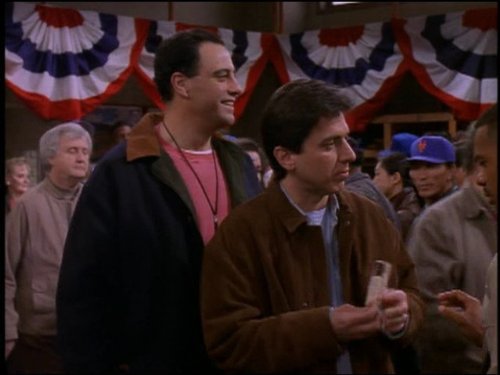
Noah: You’ve been in and around TV a lot, but you didn’t mention that you appeared in an episode of the sitcom **Everybody Loves Raymond** with some of your 1969 teammates. What was that experience like?
Ron: They were wonderful. That was a long time ago but it’s still very fresh in my mind. Ray Romano and that whole cast were so generous with us. Obviously, they wanted us to be as natural as we could. I think we did a pretty good job. We were lucky, it was a hit show and it played everywhere and we still get residuals for it (laughs). It’s crazy, but it’s still significant for me because I got to see the inside of a sitcom and I got to meet a bunch of really fabulous people.
Noah: Interesting take. So what do you think of the Mets today, and how far do you see them going this season?
Ron: The Mets are relevant, and the sky’s the limit for them. That team with the addition of Yoenis Cespedes last year along with that returning young pitching is going to be a much better team out of the gate. This offseason, they got a great deal for Cespedes and I think that Neil Walker can replace Daniel Murphy at second base. Overall, I really like what the team has done. Also, that experience of making it all the way to the World Series and getting beat by a better team will make them understand that they still have some more things to work on. It’ll put some purpose in their spring training as well. I expect them to be relevant and I don’t see any reason why they can’t get back in the playoffs in 2016.
Noah: You mentioned that talented young pitching staff, now who on it would you least like to face?
Ron: There’s a whole bunch of them. Harvey is somebody who you don’t want to see, Wheeler’s going to be back at some point this year. Familia coming out of the bullpen, he’s got nasty stuff. The toughest thing for (the group) is going to be getting to the closer. With Thor and Matz, you have a starting rotation that is as good as anybody’s in the game.
Noah: And lastly, if you could give any message to Mets fans today, what would it be?
Ron: Try to expect good things from the team. I got up to (Citi Field) for a couple of series last year. Including when they got Cespedes and swept the Nationals. I saw how good this team really is. (Last year) the Nationals looked beatable, the Mets looked formidable and Mets fans came out of the woodwork. All of the sudden, Citi Field came alive. There’s always been a lot of Mets fans, all the team has to do is show them something to make them come out. I think the team put players on the field that fans could get excited about and I think that Mets fans have every reason to expect something on the same order as last year.
